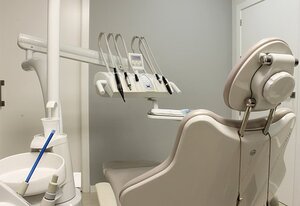The Impact of Periodontal Disease on Systemic Health
Body
Periodontal disease, commonly known as gum disease, is an inflammatory condition affecting the supporting structures of the teeth. While it primarily manifests in the mouth, emerging research reveals that periodontal disease can have significant implications for systemic health. Understanding these connections is crucial for dental and medical professionals, as well as patients, to promote comprehensive health strategies. This article explores the impact of periodontal disease on systemic health, highlighting its associations with various chronic conditions.
1. Overview of Periodontal Disease
Periodontal disease encompasses a range of conditions, including gingivitis (the milder form characterized by inflammation and bleeding of the gums) and periodontitis (a more severe form that can lead to tooth loss). Both conditions result from the accumulation of plaque and tartar on the teeth, leading to inflammation. If untreated, periodontal disease can progress, affecting not only oral health but also systemic health.
2. Inflammation and Systemic Health
At the core of the connection between periodontal disease and systemic health is inflammation. Chronic inflammation from periodontal disease can enter the bloodstream, contributing to the systemic inflammatory response. This ongoing inflammation is associated with various health conditions, including:
Cardiovascular Disease
Several studies have suggested a link between periodontal disease and cardiovascular disease. The American Heart Association has reported that individuals with periodontal disease are at a higher risk of developing heart disease and stroke. The inflammation associated with gum disease may contribute to the buildup of plaque in the arteries, leading to atherosclerosis.
Diabetes
There is a bidirectional relationship between periodontal disease and diabetes. Individuals with diabetes are more susceptible to periodontal disease due to impaired immune response and reduced blood flow to the gums. Conversely, periodontal disease can make it more challenging to control blood sugar levels. Research indicates that treating periodontal disease can lead to better glycemic control in patients with diabetes.
Respiratory Diseases
Recent studies have explored the connection between periodontal disease and respiratory diseases, including chronic obstructive pulmonary disease (COPD) and pneumonia. The bacteria from infected gums can be aspirated into the lungs, leading to respiratory infections. A study in Chest found that individuals with periodontal disease had an increased risk of pneumonia, underscoring the importance of maintaining oral health in older adults and those with existing respiratory conditions.
3. Links to Other Chronic Conditions
Beyond the well-documented connections, periodontal disease has been linked to other chronic conditions, including:
Rheumatoid Arthritis
Research has shown a correlation between periodontal disease and rheumatoid arthritis, an autoimmune disorder characterized by inflammation in the joints. The inflammatory processes involved in both conditions may share common pathways. A study published in The Journal of Rheumatology suggested that treating periodontal disease may help reduce the severity of rheumatoid arthritis symptoms.
Kidney Disease
Chronic kidney disease (CKD) is another area of concern related to periodontal health. Studies have indicated that individuals with periodontal disease are at a higher risk of developing CKD. The inflammatory mediators from gum disease may contribute to kidney damage over time. Regular dental check-ups and periodontal treatment may be beneficial in reducing the risk of kidney-related complications.
Alzheimer’s Disease and Cognitive Decline
Emerging research has also investigated the potential link between periodontal disease and cognitive decline, including Alzheimer’s disease. Some studies have suggested that the inflammation and bacteria associated with periodontal disease may play a role in the development of neurodegenerative diseases. The oral microbiome may influence brain health, warranting further exploration in future research.
4. The Importance of Prevention and Treatment
Given the significant impact of periodontal disease on systemic health, preventive measures and effective treatments are essential. Regular dental check-ups, thorough oral hygiene practices, and patient education are critical components of preventing gum disease.
Oral Hygiene Practices
- Brushing: Brush at least twice a day with fluoride toothpaste to remove plaque and prevent gum disease.
- Flossing: Floss daily to remove food particles and plaque between teeth and below the gum line.
- Mouthwash: Use an antibacterial mouthwash to help reduce bacteria in the mouth.
Regular Dental Visits
Routine dental check-ups allow for early detection and treatment of periodontal disease. Dental professionals can provide professional cleanings, periodontal assessments, and guidance on maintaining oral health.
5. The Role of Healthcare Providers
Collaboration between dental and medical professionals is crucial in addressing the systemic implications of periodontal disease. Dental professionals should screen for signs of systemic diseases during routine examinations, while medical professionals should consider a patient's oral health as part of their overall health assessment.
Conclusion
The impact of periodontal disease on systemic health is profound and multifaceted. Chronic inflammation associated with gum disease is linked to several serious health conditions, including cardiovascular disease, diabetes, respiratory diseases, rheumatoid arthritis, kidney disease, and cognitive decline. Understanding these connections underscores the importance of maintaining good oral health and the need for interdisciplinary collaboration among healthcare providers. By prioritizing periodontal health, individuals can take significant steps toward improving their overall well-being and reducing the risk of systemic health issues.











Comments